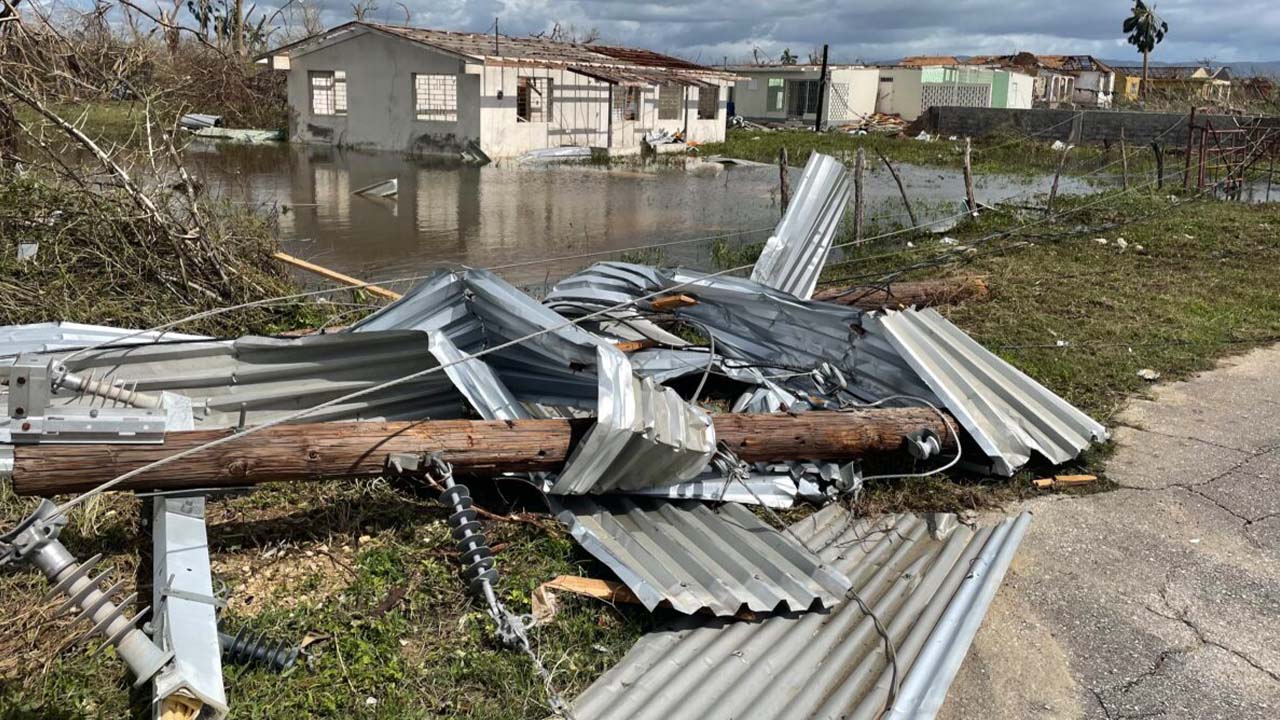
UWI Scientists Co-Author Study That Finds Climate Change Enhanced Hurricane Melissa’s Intensity
Scientists from The University of the West Indies (The UWI) have contributed to a new international rapid analysis which confirms that human-induced climate change made Hurricane Melissa more intense and destructive.
The study, incorporating data from Jamaica and eastern Cuba, was conducted by the World Weather Attribution, an international collaboration that studies how climate change affects extreme weather. It shows that the atmospheric and oceanic conditions leading to the storm were made about 6 times more likely by climate change.
Hurricane Melissa struck the Caribbean in late October 2025, crossing Jamaica, Cuba, the Dominican Republic and Haiti. The storm’s winds increased from 68 to 140 miles per hour (110 – 225 km/h) within one day — a process of ‘rapid intensification’ that scientists say is becoming more frequent as the planet warms. To date, Melissa left at least 75 people dead, displaced thousands and caused economic losses amounting to billions of US dollars across the region.
The post-storm rapid analysis was conducted by 20 researchers from universities and meteorological agencies across Jamaica, Cuba, Ireland, the Netherlands, the United Kingdom, the United States, and Austria. Contributing authors from The UWI Mona Campus were Professor Michael Taylor, Professor of Climate Science and Dean, Faculty of Science & Technology; Professor Tannecia Stephenson, Deputy Dean, Faculty of Science & Technology; and climate specialists Dr Jhordanne Jones and Dr Jayaka Campbell.
Researchers used three scientific approaches to examine rainfall, wind speeds, and the environmental conditions that allowed Hurricane Melissa to intensify so quickly. Using the Imperial College Storm Model (IRIS) which estimates the role of climate change in tropical cyclones, the study found that climate change increased the storm’s maximum wind speeds by 7% and extreme rainfall by 16%. Historical observations also show that the maximum rainfall over five days in Jamaica and eastern Cuba is now between 20 and 50 per cent higher than in pre-industrial times.
Dr Jayaka Campbell of The UWI Mona Campus described the findings as a warning sign for the region and called for Melissa to be a ‘turning point’. “Hurricane Melissa’s catastrophic landfall in Jamaica is not an anomaly; it is the canary in the coal mine. When a storm can explosively intensify from 70 to 185 miles per hour (113 – 298 km/h) in less than three days over ocean waters that are ~1.5°C warmer than normal, we are witnessing the dangerous new reality of our warming world.”
He reiterated, “Melissa destroyed livelihoods, infrastructure, and lives in a matter of hours, but the conditions that created this monster storm have been building for decades. We have the science, we understand the risks, and we know the solutions. Every fraction of a degree of warming we prevent, every investment in resilient infrastructure, every dollar committed to adaptation in vulnerable regions is the difference between survival and catastrophe for millions of people. Let us make Hurricane Melissa a turning point, not just another tragedy we highlight and forget.”
Co-author, Friederike Otto of the Centre for Environmental Policy, Imperial College, commented on adaptation limits, saying, “What we see with Hurricane Melissa and other recent monster storms is that they are becoming so intense that they will soon push millions of people beyond the limits of adaptation. Unless we stop burning coal, oil and gas, we will see more and more countries reaching these limits.”
The UWI scientists are sharing the science and sounding the alarm. Speaking at a press briefing, Professor Michael Taylor addressed the critical next steps “We’re already engaging several negotiators within the region and on release of the study, we will circulate strategically and make ourselves available to discuss the results. The objective is to ensure that those from the region who are heading to COP have the science before them.”
The World Weather Attribution’s rapid analysis concludes that without significant reductions in fossil fuel use, more intense and destructive storms like Melissa will become increasingly common. The findings also highlight the urgency of investing in adaptation strategies to protect vulnerable communities across the Caribbean. The group has completed over 100 peer-reviewed studies showing that human-caused climate change is intensifying weather extremes worldwide, and notes that the influence of climate change on tropical cyclones is more complex than that of other types of extreme weather events, as impacts are driven by both heavy rainfall and extreme winds.
The full report, titled “Climate Change-Enhanced Intensity of Hurricane Melissa: Testing the Limits of Adaptation in Jamaica and Eastern Cuba,” is now publicly available.



